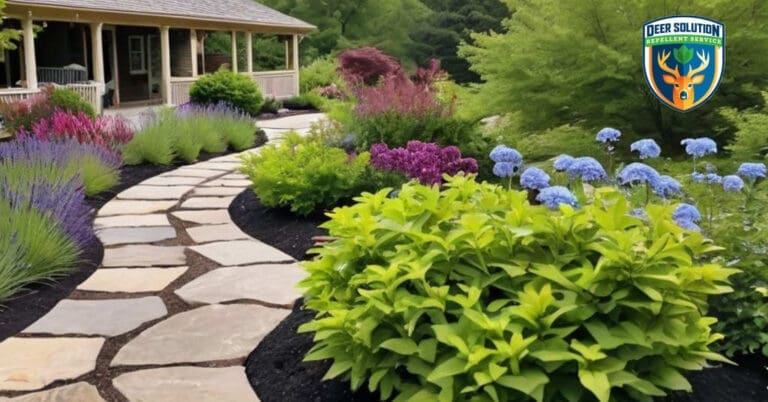Bugleweed (Ajuga reptans) is a common sight in many gardens, favored for its attractive foliage and ability to thrive in less-than-ideal conditions. But for those with gardens visited by deer, the question arises: do deer eat bugleweed? This article explores the relationship between deer and bugleweed, shedding light on why this plant might just be an unsung hero in your garden’s defense strategy.
The Nature of Bugleweed
With its dense mats of foliage and striking blue blooms, bugleweed is more than just eye candy in the garden. It’s a hardy perennial that can quickly cover ground, providing a lush undergrowth in shaded areas where other plants might struggle. Its resilience and ease of care make it a top choice for both novice and experienced gardeners. Bugleweed’s ability to flourish in various conditions, including poor soil and partial shade, further enhances its appeal as a versatile and dependable garden staple.
Understanding Deer Preferences
Deer are opportunistic feeders with a preference for tender, nutrient-rich plants. Their feeding habits can wreak havoc on gardens, especially when natural food sources are scarce. However, deer also avoid certain plants due to their taste, texture, or scent. Understanding these preferences is key to selecting plants that can coexist with deer without being decimated by them.
Bugleweed’s Hidden Strengths Against Deer
Bugleweeds may not be widely known for their deer resistance, but they have several characteristics that make them less appealing to these garden visitors:
- Bitter Flavor: The leaves of bugleweed have a naturally bitter taste, which can deter deer from munching on them.
- Aromatic Foliage: While subtle to humans, bugleweed emits a fragrance that can mask the scents of more appealing plants, making it harder for deer to find their preferred snacks.
Maximizing Bugleweed’s Benefits in Your Garden
In addition to its deer-resistant qualities, bugleweed offers several other benefits that can enhance your garden:
- Soil Health: Bugleweed’s dense ground cover helps prevent soil erosion and retains moisture, promoting healthier soil conditions for surrounding plants.
- Pollinator Attraction: The vibrant blue flowers of bugleweed attract pollinators such as bees and butterflies, contributing to the ecological balance of your garden.
- Natural Weed Suppression: By forming a thick mat of foliage, bugleweed effectively suppresses the growth of unwanted weeds, reducing the need for manual weeding and chemical herbicides.
Integrating Bugleweed with Other Garden Features
Bugleweed can be a dynamic addition to various garden settings. Here are some creative ways to integrate it into your landscape:
- Pathway Edging: Use bugleweed to line garden paths and walkways. Its low-growing habit and colorful blooms create a visually appealing border that guides visitors through your garden.
- Rock Gardens: Plant bugleweed in rock gardens or between stepping stones. Its ability to thrive in rocky, well-drained soil makes it an excellent choice for adding greenery and color to these areas.
- Shaded Areas: Take advantage of bugleweed’s shade tolerance by planting it under trees or in other shaded spots where grass and other ground covers may struggle to grow.
Conclusion: Embracing Bugleweed in Your Garden
Bugleweed is a versatile and attractive addition to any garden, offering both aesthetic and practical benefits. Its natural resistance to deer, combined with its ecological advantages, makes it an excellent choice for gardeners dealing with deer. By incorporating bugleweed and employing strategic gardening practices, you can create a beautiful and resilient garden that stands up to deer pressure. For enhanced protection, consider the benefits of professional services like those offered by Deer Solution. Embrace bugleweed, and enjoy a thriving garden that supports both beauty and biodiversity.
For those seeking comprehensive protection, professional deer management services offer eco-friendly solutions tailored to your garden’s needs. Deer Solution specializes in all-natural repellent treatments that are safe for your family, pets, and the environment. These monthly treatments are customized to provide ongoing protection, ensuring your plants thrive without the threat of deer damage.








